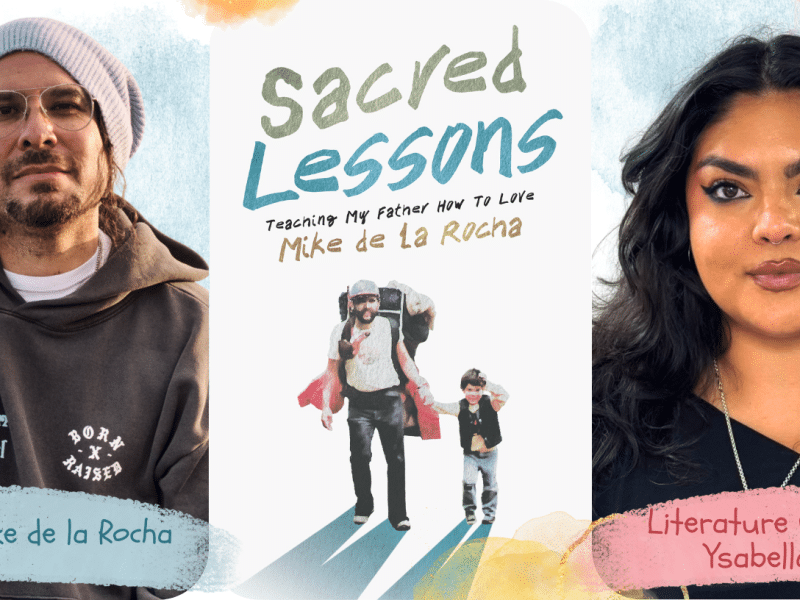Latina Love for Insecure
Out of the shows I devoured recently, one stands out: “Insecure” on HBO, which wrapped up its fourth season this June.

When I am not doom scrolling, getting worked up about the latest Trumpteria, or trying to do my part to raise awareness about injustices all around us, I find a brief mental escape from this worsening pandemic by watching shows created by women. Out of the shows I devoured recently, one stands out: “Insecure” on HBO, which wrapped up its fourth season this June.
“Insecure,” based in Los Angeles, centers a group of Black friends in their early thirties confronting transformative changes in their career, relationships, and within themselves. Each Sunday starting April 12th, I looked forward to watching Issa Dee, played by the show’s creator Issa Rae, with eager anticipation and strategically avoiding twitter for spoilers. Now that the season is over, I turned to twitter to seek out Latinas like me who also find the show refreshing and relatable.
“I’m used to seeing white leading ladies trying to find love and feeling complete. I see the characters still trying to find themselves while also making strides in their career and showing their ups and downs of friendship,” Maryann Morales Mallin from Fort Lauderdale, Fla. said. “I have definitely grown out of friendships but also come back to them after some time off. I’ve never seen that on a show and I love it.”
Dinah Felix from Yorba Linda, Calif. said, “I spend a lot of time in LA with friends because it’s where I feel connected to my roots. During the shutdown, [“Insecure”] was the LA dose I needed to get me through!”
Los Angeles County is home to 9% of the country’s Latinos. The creators of the show are intentional about reminding viewers how integral Latinos are to the city. In earlier seasons of the show, there is a plotline about discrimination against Latinx students at one of the schools where Issa works. Issa’s best friend Molly, played by Yvonne Orji, dates Dro, who is Afro-Latinx. One of the guys Issa dates when she is on the rebound from her breakup with Lawrence is Latinx. Nearly every episode references Latinx food, and there are at least a couple of scenes with a Tapatio reference. As a person who carries Tapatio in her purse because some restaurants have the audacity to only carry Tabasco, I clapped at that scene. I appreciate Insecure depicting Latinos as multidimensional.
This season the Latinx representation went international. Molly travels to Baja Mexico with her boyfriend, his brother and his wife, all of who are Asian American. While at the resort where they are all staying, Molly, who is a dark-skinned Black woman, is unfairly asked by a white presenting Latina to show her room key in order to get a towel while at the pool. This racist exchange gets Molly upset and when she recounts the incident to her travel mates, she is met with skepticism. I appreciated this scene because it showed how Latinos and Asian-Americans can be complicit in white supremacy. This is a timely experience to portray when the country is reflecting on its racist history and racist present. I wasn’t the only one to take note.
Racist microaggressions and their impact is not something that I would see on a show that centers white characters. I think this is, in part, why so many Latinas connect to the show even when it’s not about us. Many Latinas love “Insecure” because the themes of friendship, growth, and relationships are universal. These aren’t experiences that just happen to white characters, as Hollywood would want you to believe when only 2.2 out of 10 leads on scripted television shows are people of color. Latinos share 6.2% of all roles, which means their share of lead roles are practically nonexistent.
The fourth season of “Insecure” revolves around one of the hardest types of breakups: the unraveling of friendship between Issa and Molly.
“I definitely relate to the friendships [on the show] and how they can be just like a romantic relationship which is full of ups and downs,” Betsy Cardenas from Los Angeles said.
Throughout the season, Molly experiences some rough patches with her new boyfriend and Issa gains confidence in her career, but neither of them can rely on each other to share these transformations together as a tension between them grows.
“The truth behind the effort that it takes to maintain an adult friendship was wonderful to see reflected on screen. [I related to] the complexity of growing up and sometimes apart,” Marcela Torres-Cervantes from Durham, N.C. said.
Molly works through the distance growing between her and Issa and struggles with her man with the help of her therapist. The normalization of therapy and mental health is another element of this season that connected with Latinas. Issa’s romantic-partner-turned-friend Nathan shows vulnerability in confiding in her about his Bipolar diagnosis.
“I love the way the show addresses mental health and attempts to remove the stigma. From Nathan’s challenges with Bipolar disorder to Molly seeking help from a therapist, the show addresses them in a way that isn’t blown out of proportion and helps the audience acknowledge that mental health issues affect our daily lives in ways we have previously dismissed,” Felix said.
A delight this season was watching Issa rekindle her love with Lawrence. From the first season to this one, what finally creates a path for these two to come together is that each of them seems to be finally comfortable and happy with who they are as individuals, especially professionally. Something that was weighing Issa down in earlier seasons was being in a career where she was not valued, while Molly, for example, was finding her groove at a new law firm.
Maryann Morales Mallin in Fort Lauderdale, Fla., identified with this. “I was in social work like Issa working with kids and trying to get by while my friends would do better.”
For four seasons, viewers witnessed Issa transform, gain confidence, and find her passion for uplifting Black small businesses and performers. We saw Lawrence also confront his insecurities and how they contributed to his fall out with Issa. But just when it seemed we were handed our fairytale ending, a revelation in the season finale brings us down to the reality that life is messy.
“The show is a (hilarious and sometimes crazy) reminder that not everything is going to work out and that is okay,” Tiffany Tapia, New York said. “Self-growth is very necessary and “Insecure” does a captivating job of teaching us that.”



